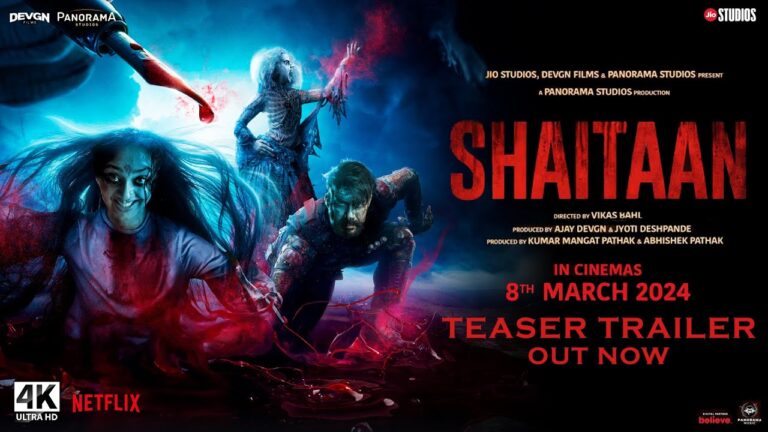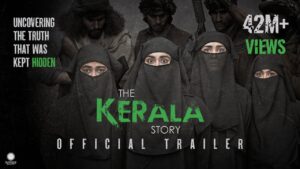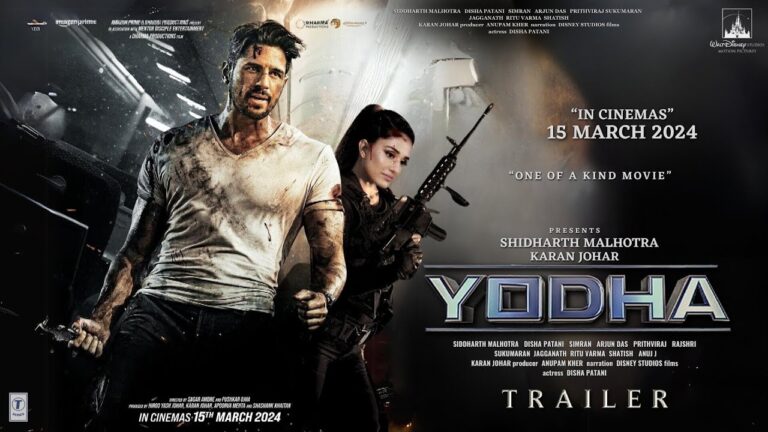Mrs. Chatterjee vs Norway Movie Review: “Mrs. Chatterjee Vs Norway” (2023) is a heart-wrenching drama based on a true story. It follows Debika Chatterjee (Rani Mukerji), an Indian woman fighting the Norwegian child welfare system to regain custody of her children. While the film shines a light on a sensitive issue and delivers a powerful performance by Mukerji, it has its fair share of shortcomings.
A Mother’s Anguish: A Powerful Performance by Rani Mukerji
The film’s emotional core rests on Rani Mukerji’s portrayal of Debika. Mukerji delivers a nuanced performance, capturing the character’s desperation, resilience, and unwavering love for her children. Whether it’s the quiet moments of despair or the fierce courtroom battles, Mukerji embodies Debika’s journey with raw emotion, making the audience deeply invested in her fight.
A Story Ripped from Headlines: Raising Awareness
The film tackles the controversial issue of international child welfare custody battles. It sheds light on the cultural misunderstandings and legal complexities faced by foreign parents navigating a different system. This raises awareness about a critical issue and sparks conversations about cultural sensitivity within child welfare services.
A David vs. Goliath Battle: Keeping You on the Edge of Your Seat
The courtroom drama aspect of the film is well-executed, creating a sense of suspense and keeping viewers invested in the outcome. We see Debika, an ordinary woman, taking on a powerful system, leaving viewers to root for her underdog story.
Emotional Manipulation: A Tightrope Walk
While the film effectively evokes empathy for Debika’s plight, it sometimes borders on emotional manipulation. Certain scenes, particularly those portraying the children’s separation, are undeniably moving but might feel overly sentimental to some viewers.
Black and White Portrayals: Nuance Lost in Stereotypes
One of the film’s weaknesses lies in its portrayal of characters. The Norwegian social workers are depicted as cold and uncaring, lacking any depth or understanding of their perspective. This creates a “good vs. evil” dynamic that hinders a more nuanced exploration of cultural differences within child welfare practices.
Lost in Translation: A One-Sided Narrative
The film primarily focuses on Debika’s experience, neglecting to explore the perspective of the Norwegian side. It doesn’t delve into the reasons behind their decision to remove the children, leaving viewers with a one-sided narrative and potentially incomplete picture of the situation.
A Familiar Formula: Bollywood Tropes in a Serious Drama
While “Mrs. Chatterjee Vs Norway” tackles a serious subject, it occasionally relies on familiar Bollywood tropes. The melodramatic courtroom outbursts and exaggerated emotional reactions might feel out of place in a film striving for realism.
Beyond the Glitz: A Focus on Emotional Journey
Unlike some Bollywood films, “Mrs. Chatterjee Vs Norway” forgoes lavish sets and extravagant song sequences. Its focus remains on Debika’s emotional journey, creating a more grounded and relatable narrative.
A Story that Resonates: A Universal Message of Motherhood
Despite its flaws, the film’s core message of a mother’s love transcends cultural boundaries. Debika’s unwavering determination to be reunited with her children resonates with audiences worldwide, regardless of their background.
Beyond the Headlines: Examining the Film’s Themes
“Mrs. Chatterjee Vs Norway” delves deeper than just a custody battle. Let’s explore the underlying themes:
-
The Clash of Cultures: The film highlights the challenges faced by immigrants navigating a different culture and legal system. Debika’s struggles with language barriers, societal norms, and the Norwegian child welfare system expose the complexities of cultural misunderstandings, particularly when it comes to child-rearing practices.
-
The Power of Motherhood: The film celebrates a mother’s unwavering love and determination to protect her children. Debika’s relentless pursuit of justice showcases the strength and resilience mothers possess in the face of adversity.
-
The Importance of Advocacy: The film subtly highlights the critical role of advocacy groups and legal support for immigrants facing such situations. Debika’s connection with the Indian embassy and legal counsel provides a glimmer of hope and underscores the importance of support systems in navigating complex legal battles.
-
The Legal Gray Areas: The film avoids portraying the Norwegian social services as purely villainous. It hints at potential concerns they might have had regarding the children’s well-being, raising questions about the complexities of balancing cultural practices with child protection. However, a deeper exploration of their perspective could have added nuance.
Characters Beyond Stereotypes: Exploring Motivations
While the film relies on some stereotypes, there are attempts to provide motivations for characters:
-
The Social Worker’s Dilemma: A glimpse into the social worker’s perspective, even if brief, could have added depth. Were there genuine concerns about the children’s welfare, or were there cultural misunderstandings at play? Exploring their motivations would have created a more balanced narrative.
-
Debika’s Support System: The film portrays Debika’s interactions with the Indian embassy and lawyer. These characters, though secondary, offer a sense of support and highlight the importance of solidarity in such situations. Exploring their motivations and challenges could have further enriched the narrative.
Technical Execution: A Blend of Realism and Emotional Impact
The film’s technical aspects contribute to its overall impact:
-
Cinematography: The use of handheld camerawork in emotional scenes creates a sense of immediacy and draws viewers closer to Debika’s experience.
-
Music: The minimalist score effectively complements the narrative, allowing the emotional weight of the performances to take center stage.
-
Production Design: The film showcases the stark contrast between Debika’s life in India and the sterile environment of the Norwegian foster home, visually emphasizing the cultural differences.
A Missed Opportunity for Dialogue: The Film’s Legacy
“Mrs. Chatterjee Vs Norway” has the potential to spark important conversations about cultural sensitivity, international child welfare practices, and the emotional toll of such legal battles. However, its one-sided portrayal might hinder productive dialogue between different perspectives.
The Power of Storytelling: A More Balanced Approach
Imagine a film that explores the story from both Debika’s and the Norwegian social worker’s perspectives. It could showcase the cultural clashes, communication breakdowns, and genuine concerns on both sides. This approach could foster empathy and understanding, ultimately leading to a more productive conversation about solutions.
Mrs. Chatterjee Vs Norway” is a well-meaning film with a powerful emotional core. While it sheds light on a critical issue and delivers a stellar performance by Rani Mukerji, its one-sided narrative and reliance on stereotypes limit its impact. The film serves as a reminder of the importance of balanced storytelling in tackling sensitive issues and promoting cross-cultural understanding. Ultimately, it can be a catalyst for change if it sparks conversations that move beyond blame and towards solutions that prioritize the well-being of children caught in the middle of cultural clashes.
In Conclusion: A Film with Potential, But Room for Improvement
“Mrs. Chatterjee Vs Norway” is a well-intentioned film with a powerful central performance. It sheds light on a critical issue and offers a moving portrayal of a mother’s love. However, its reliance on stereotypes, a one-sided narrative, and occasional melodramatic moments hold it back from its full potential.
Ultimately, the film is a thought-provoking exploration of motherhood, cultural clashes, and the complexities of international child custody battles. While it might not be flawless, it’s a film that stays with you long after the credits roll and sparks important conversations about cultural sensitivity and the rights of parents.








+ There are no comments
Add yours